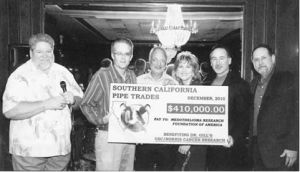Pericardial Mesothelioma Introduction
Pericardial Mesothelioma is an extremely difficult cancer to treat and presently, all treatment methods used have a poor success rate. The chances of a patient’s survival depend largely on how early and how aggressively the cancer is treated. If pericardial mesothelioma is treated when it has fully matured and developed then the chances of survival are very slim and the prognosis for a patient could be only a couple of months. The latency period of pericardial mesothelioma (20 – 50 years), and its symptoms which are ordinary of other more common diseases such as pneumonia, make it extremely difficult to diagnose and therefore difficult to treat in its early stages. In this way, a lot of pericardial mesothelioma treatments do not aim to cure patients but instead focus on reducing the symptoms.
Before a patient is treated, a doctor will evaluate him or her, and afterwards decide which treatment method is most suitable for the patient’s situation. The patient’s age, medical history, general well being and even weight are taken into account before the doctor will decide which of the three treatments are most appropriate. These treatments are surgery, chemotherapy and radiation therapy.
Surgery
There are two different types of surgery that can be used one of which is called aggressive surgery. This is the most dangerous of all the treatment methods available and only the fittest of people are deemed strong enough to undergo this. Aggressive surgery consists of removing large chunks of cancerous cells from inside the patient. This is extremely dangerous in the case of pericardial mesothelioma seeing as the cancerous cells are in extremely close proximity to vital organs such as the heart and lungs. Extremely skilled surgeons are needed to perform this operation.
The second type of surgery is palliative procedures and this type of surgery is used only for the purpose of reducing the symptoms of the cancer. Palliative procedures are performed when pericardial mesothelioma is in its latest stages and is practically impossible to cure.
Chemotherapy
Chemotherapy is the most well known cure of cancers and involves using drugs to kill of cancerous cells. However, many of the drugs used do not have a high success rate although researchers are discovering new combinations of drugs that work more effectively. Many pharmaceutical companies are also endeavouring to find new drugs. Researchers predict that they will soon discover a drug with a significantly improved success rate.
Radiation Therapy
This form of treatment uses doses of radiation to kill cancerous cells. However, in the case of pericardial mesothelioma this is extremely difficult because as well as damaging cancerous cells, the radiation also damages vital organs such as the heart and lungs. This makes using radiation therapy most effectively extremely difficult. The dose of radiation is usually too weak to make a significant impact on curing pericardial mesothelioma.
Dual Therapy
Dual therapy is just a combination of surgery, chemotherapy and radiation therapy. This consists of using surgery to remove the majority of the cancer cells and then using chemotherapy and radiation therapy to kill off any remaining cells. This has proved to be an effective treatment method however also very dangerous. Only the fittest young people are able to undergo this treatment.
Non-Chemotherapy Veglin Drug: Clinical Trials
Veglin is an anti-angiogenesis non-chemotherapy drug (angiogenesis inhibitor) that was developed by Dr. Parkash S. Gill, Oncologist and Lead Contributor for the Mesothelioma Research Foundation of America, for the treatment of a variety of malignancies including mesothelioma. Veglin is one of several newly developed non-chemotherapy drugs being tested for possible utilization in the ongoing struggle to combat malignant mesothelioma.
About Veglin as an Angiogenesis Drug
Angiogenesis refers to the physiological process by which new blood vessels are formed from existing blood vessels. Angiogenesis is a natural process of cellular growth and development; however, it also fuels tumor metastasis (spread and growth of cancer). Tumors have a limited capacity to grow unaided. In order to continue to grow and metastasize, tumors require a continuous flow of oxygen and essential nutrients. In order for tumors to receive such a continuous flow, they require blood vessel growth into the cancerous mass. Tumors induce the required blood vessel growth by secreting a variety of growth factors (VEGF). It is believed (and proven effective in early clinical trials) that preventing the formation of new blood vessels can prevent the growth and spread of tumors.
Conclusion
Individuals who were exposed to asbestos and have developed symptoms of mesothelioma, lung cancer, asbestosis or another asbestos-related disease should seek a professional medical opinion. The Mesothelioma Research Foundation of America (a not-for-profit research organization) provides free access to our mesothelioma research team for answers to your medical questions. Simply Ask Dr







